In a recent Commons debate, Graeme Downie, MP for Dunfermline and Dollar, raised questions about the UK submarine fleet, focusing on recruitment challenges, the fleet’s future capabilities, and the dismantling of retired submarines.
Downie asked the Government what steps were being taken to support submariners and their families, whether the fleet was equipped to meet current and future demands, and how ongoing dismantling projects would secure high-skilled jobs in his constituency.
Downie emphasised the increasing undersea threats posed by adversaries, particularly Russia. “More recently, we have been aware of the ongoing undersea threat from Russia, most recently in the sabotaging of undersea cables in the Baltic sea. Submarines will clearly play a vital role in combating those efforts by our opponents,” he stated.
He also underscored the strategic importance of maintaining the UK’s independent nuclear deterrent and the submarine force’s critical role in supporting both maritime and land-based forces.
The debate also touched on the difficulties faced by submariners, including long periods of isolation. Downie highlighted, “The First Sea Lord has warned, ‘We are effectively in a war for talent in this country.’ He also said that ‘the submarine service…go through significant periods of real social isolation from the people they love…we must ensure the pressures that are inevitably felt by them are mitigated or eased or supported as best we can.’” He called on the Government to address these challenges and provide better support to submariners and their families.
Discussing future capabilities, Downie cited evidence from the Defence Committee’s 2024 report, which raised doubts about the fleet’s capacity to meet its growing commitments. “Even once all seven Astutes are in service, it is questionable whether the force will be able to sustain their current tasks and the additional deployments to Australia and wider region from 2026 onwards,” he quoted.
Downie also expressed concern about the financial pressures on the defence nuclear enterprise, noting that “the National Audit Office found key risks…relating to costs, skills, commercial relationships and delivery to schedule.”
Responding to these concerns, Defence Minister Maria Eagle acknowledged the pressures faced by submariners and their families. “We are aware of the pressure put on submariners and their families during their long periods of absence. They are given extensive training prior to deployment to try and help them prepare for life underwater and for life away from their families for such a long time,” she said.
She also noted the availability of welfare support services and the Royal Navy’s enhanced efforts to support deployed personnel’s families.
On the Astute fleet’s readiness, Eagle assured MPs that it remains fully capable of fulfilling its roles. “The fleet is perfectly capable of carrying out all of the roles that are required of it,” she stated. She confirmed the ongoing construction of additional Astute-class submarines, including HMS Agamemnon and Astute Boat 7, as well as progress on the replacement of the Vanguard class.
Addressing concerns about the defence nuclear enterprise, Eagle highlighted closer collaboration between organisations to ensure effective delivery. “The organisations that make up the defence nuclear enterprise are working more closely than ever before, operating effectively as an integrated team to ensure the maintenance of the continuous at-sea deterrent posture,” she explained.


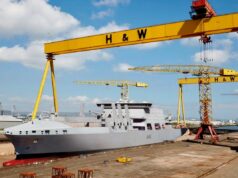
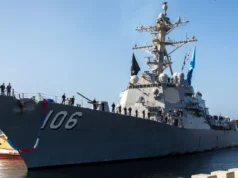
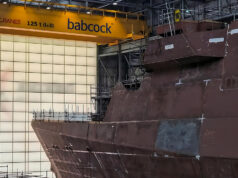
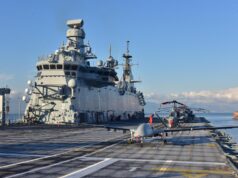
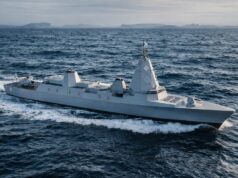
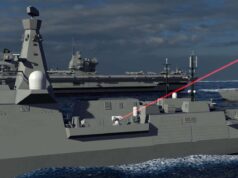
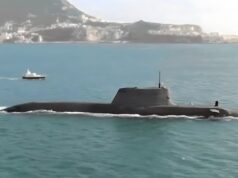
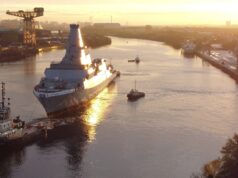
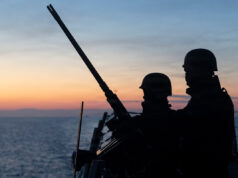
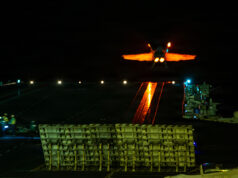

The submarine program is the most important aspect of British defence and its the main asset we can offer to any coalition especially the USA which is short of submarines and has even bigger manufacturing and maintenance issues than us. It’s unfortunate that Ben Wallace never published the submarine vs surface ship analysis he was supposed to in 2022. With the role out of SAR satellite constellations and now even Geo stationary optical spy satellites surface ships will not be able to operate in high threat environments and more pressure will be put on submarines to carry the burden.
It’s vital we sort the manufacturing issues at Barrow and move forward with project Euston.
I spent almost 10 years on T boats and the things that pissed us off the most was all the nonsense when back in Devonport. The months away were challenging but once the hatch closes you get on with it and i had some of my best times at sea. Having boats that are broken, stuck alongside for months or even years was the primary reason i left.
Surely the answer to both problems of the subs struggling to achieve all tasks, and the strain on submariners’ family life is obvious: put more subs in the water and recruit more people to crew them!
We need to build at least 10 AUKUS subs for ourselves when the time comes.
I wonder if there are other solutions not yet considered. If a sub has to continuously escort one of the Vanguards (and later, Dreadnoughts) then is it worth developing a UUV like the American Stingray? Add some torpedoes to it and have it accompany the SSBN on patrol to protect it. They could also patrol UK and North Atlantic waters, on the hunt for Russian ships up to no good.
Failing this, could we fall back on a small class of diesel submarines for use around UK and the North Atlantic, leaving the Astutes to further-flung duties?
I agree getting more boats and creating a larger fleet and industry is the best way to fix the problem.
It’s an internet myth that an SSN escorts an SSBN. It’s never happened because no one including us knows where any SSBN is. SSN’s will add to the overall ASW picture of a wide area but that’s it.
For the UK given our ocean location and global needs, SSK’s are just not very useful.
Fair enough. I’d read it on here a couple of times, I think.
I agree we need SSNs; my thought was that if funding additional ones was too much, adding SSKs for protecting our home and local waters would add mass and enable the Astutes to do other tasks.
But I think a class of UUVs, similar to Stingray, would be a better idea myself – if we really can’t build extra SSNs.
I agree, uuv’s are the way to go.
It is indeed unfortunate the UK is unable to attract crew or to Command nuclear submarines which are tze heart of our defence when everything else may be turned to ash.
I am 73 and would volunteer today for submarine service if there wasn’t an age restriction. As an old CPO used to bellow at us “Hands off c…s, on socks, lean up and get on parade”.
The majority of youth of today have no clue in which direction they are heading. The government are sleepwalking us into WW3 and its already too little too late, there are no more railings left to melt down.
The RN and other services have been run into the ground. To recover from the latter means a lot more than 5% of GDP being spent on defence.
To all politicians: ger off your sofas and computer games, we are facing a ground war in Europe very soon if Trump pulls out of Nato. WAKE UP!!